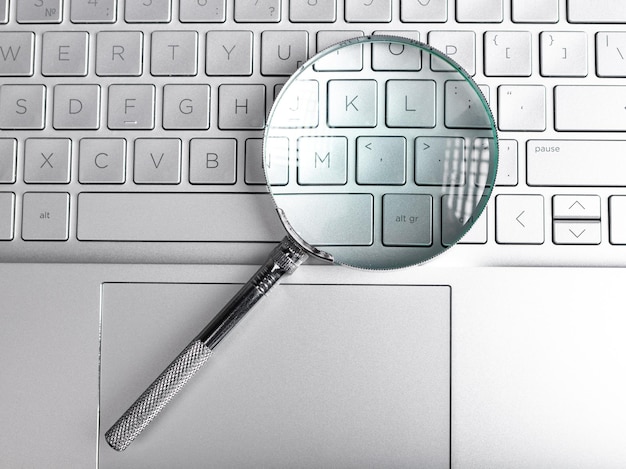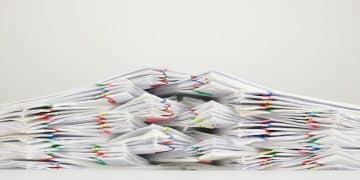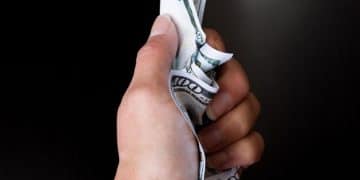US Government Holds Over $30 Billion in Unclaimed Funds as of January 2025

The U.S. government currently manages an astonishing portfolio of over $30 billion in unclaimed funds as of January 2025, belonging to millions of Americans who are unaware of these forgotten assets, ranging from lost wages to forgotten insurance payouts.
Imagine finding out that you, or someone you know, is owed money by the government—money that’s been sitting there, waiting to be claimed. As of January 2025, the U.S. government holds an astounding more than $30 billion in unclaimed funds, a sum that represents a vast reservoir of forgotten financial assets belonging to millions of Americans.
The Hidden Treasure Chest: Understanding Unclaimed Funds
Unclaimed funds are not a myth; they’re a very real and substantial financial phenomenon in the United States. These assets represent a myriad of financial instances where money or property is owed to individuals or entities but has gone uncollected. Think of them as dormant accounts, overlooked refunds, or forgotten inheritances that have, over time, been transferred to state and federal agencies for safekeeping.
The sheer scale of these funds—exceeding $30 billion by early 2025—underscores a widespread issue of disconnect between financial institutions, government agencies, and the public. These aren’t just small change; often, they are significant sums that could profoundly impact the lives of their rightful owners. From forgotten bank accounts to uncashed payroll checks, the reasons for these funds going unclaimed are as varied as the individuals they belong to.

Where Do Unclaimed Funds Originate?
The origins of unclaimed funds are diverse, encompassing a wide range of financial activities and circumstances. Understanding these sources is the first step towards potentially recovering what might be yours.
- Dormant Bank Accounts: Savings or checking accounts that have seen no activity for a specified period, typically several years. Banks are obligated to report these to the state.
- Uncashed Checks: This includes payroll checks, vendor payments, refunds from utility companies, or even dividend checks that were never deposited.
- Insurance Policy Proceeds: Benefits from life insurance policies where the beneficiaries are unaware of the policy or cannot be located.
- Stock and Mutual Fund Dividends: Unclaimed dividends, stock certificates, or proceeds from security sales.
- Utility Deposits: Security deposits paid to utility companies that were never refunded after an account was closed.
- Court-Ordered Refunds: Money owed from class-action lawsuits or other legal settlements where recipients are hard to track down.
Each state has its own escheatment laws, dictating when and how unclaimed property is turned over to the state’s treasury. This process is designed to protect the assets until the rightful owner or their heirs can claim them, rather than allowing financial institutions to simply absorb them.
Understanding the common sources of these funds can help individuals proactively search for what might be theirs. Many people move, change names, or simply forget about smaller accounts, leading to a gradual accumulation of unclaimed wealth across the nation.
The Scale of the Problem: Over $30 Billion and Growing
The figure of over $30 billion in unclaimed funds is not static; it is a constantly evolving number, with new funds being added regularly as more assets become dormant. This represents a staggering amount of wealth that could be circulating in the economy or providing financial relief to struggling families. The challenge lies in connecting these forgotten funds with their rightful owners.
The federal government, alongside state governments, plays a crucial role in maintaining databases of these assets. While the federal government doesn’t directly hold all these funds, various federal agencies manage their own sets of unclaimed monies, often related to specific programs or services. State treasuries, however, are typically the primary custodians for most types of unclaimed property.
The sheer volume of these funds highlights a societal issue: the ease with which money can become disconnected from its owner in an increasingly complex financial landscape. From outdated addresses to forgotten passbooks, the reasons are often mundane but collectively lead to this monumental sum.
Who is Holding Your Money? Federal vs. State
While the initial figure refers to all unclaimed funds held by various governmental bodies, it’s important to distinguish between federal and state custodians.
- State Unclaimed Property Programs: The vast majority of unclaimed funds in the U.S. are held by individual state treasuries and unclaimed property divisions. These usually include bank accounts, uncashed checks, utility deposits, and insurance proceeds. Websites like MissingMoney.com allow for multi-state searches.
- Federal Agencies: Several federal agencies also hold unclaimed funds. This can include unclaimed tax refunds from the IRS, forgotten savings bonds from the Treasury, or even pension benefits from various federal programs.
- Other Federal Entities: The Department of Housing and Urban Development (HUD) sometimes has unclaimed mortgage insurance refunds, and the Pension Benefit Guaranty Corporation (PBGC) holds unclaimed pension benefits from failed plans.
Navigating the various repositories can be daunting, which is why resources that aggregate search functionalities are so valuable. The key takeaway is that if you’re searching for unclaimed funds, you’ll likely need to check both state and federal resources, as different types of assets are held by different entities.
The complexity of the system is often a barrier for individuals attempting to reclaim their money. This complexity, combined with a general lack of awareness, contributes to the continuous growth of these unclaimed billions. It’s a system designed for safekeeping, but one that inadvertently makes reunification challenging.
How to Uncover Your Share: A Step-by-Step Guide
The good news is that with a bit of diligence, anyone can search for unclaimed funds. It typically doesn’t cost anything to search or claim your money, though some third-party services may charge a fee. It’s always advisable to go through official government channels first.
Starting your search involves a systematic approach, checking various sources where your funds might be held. Patience and thoroughness are your greatest allies in this process.
Key Resources for Searching Unclaimed Funds
Here are the primary avenues you should explore to determine if any of the $30 billion belongs to you:
- State Unclaimed Property Websites: The most common place to start. Every state has a website dedicated to unclaimed property. Many participate in a national database like MissingMoney.com, which allows you to perform a multi-state search.
- TreasuryDirect (for Savings Bonds): If you suspect you or a loved one might have unredeemed U.S. savings bonds, TreasuryDirect is the official portal to check.
- IRS for Unclaimed Tax Refunds: The Internal Revenue Service maintains a tool on its website to check for uncashed federal tax refunds.
- Pension Benefit Guaranty Corporation (PBGC): For unclaimed pension benefits, especially from companies that went out of business or terminated their plans, the PBGC’s search tool is invaluable.
- National Association of Insurance Commissioners (NAIC): The NAIC offers a life insurance policy locator service to help beneficiaries find policies issued by deceased family members.
- Department of Veterans Affairs (VA): Veterans or their families might have unclaimed benefits or insurance proceeds from the VA.
When searching, be prepared to enter your full name (including maiden names or previous names), any past addresses, and potentially the names of deceased relatives. The more information you can provide, the higher your chances of a successful match. Remember, these searches are usually free, so be wary of services that demand upfront payment.
Once you locate potential funds, the claiming process will vary by agency but generally involves submitting proof of identity and ownership. This might include government-issued IDs, social security numbers, and documentation linking you to the original owner if you are an heir. It’s crucial to follow instructions carefully to avoid delays.
Navigating the Claim Process: Documentation and Patience
Finding that you have unclaimed funds is exciting, but the journey doesn’t end there. The claim process, while designed to be secure, often requires meticulous attention to detail and a good deal of patience. Each agency, whether state or federal, will have its own specific requirements, and understanding them is key to a smooth process.
Don’t be disheartened if the initial search doesn’t yield immediate results, or if the claim process seems complex. The funds are held as a safeguard, and thus, strict verification is necessary to prevent fraud.
What to Expect When Filing a Claim
After you’ve identified potential unclaimed funds, the next step is to initiate a claim. This typically involves submitting a formal application and providing supporting documentation.
- Proof of Identity: You’ll almost certainly need a government-issued photo ID, such as a driver’s license or passport.
- Proof of Address: Current utility bills, bank statements, or other official documents with your name and address.
- Proof of Ownership/Connection: This is critical. For bank accounts, it could be old statements or passbooks. For insurance policies, it might be the policy number. If you are claiming on behalf of a deceased person, you’ll need a death certificate and documentation proving your relationship (e.g., will, letters of administration).
- Social Security Number: Often required for verification purposes.
- Notarization: Some claims, especially for larger sums or complex cases, may require notarized forms.
The time it takes to process a claim can vary significantly, from a few weeks to several months, depending on the agency and the complexity of the case. Be prepared for potential follow-up requests for additional information. It’s advisable to keep copies of all documents submitted and maintain a record of any communication.
While third-party “asset finders” or “heir finders” exist, charging a percentage of the recovered funds, it is generally recommended to attempt the claim yourself first, as the official government services are free. Only consider such services if the claim is particularly complex or if you are unable to dedicate the time required.
Preventing Future Unclaimed Funds: Best Practices
While recovering existing unclaimed funds is a triumph, preventing future instances is equally important. In an increasingly digital and mobile world, it’s easier than ever for financial connections to become lost. Adopting a few simple organizational habits can make a significant difference in safeguarding your assets.
The aim is to maintain clear, up-to-date records and to inform trusted individuals about your financial arrangements. Proactive measures are the most effective defense against future dormancy.

Strategies to Keep Your Money Accounted For
Here are practical steps you can take to minimize the chances of your assets becoming unclaimed:
- Maintain Current Contact Information: Always update your address, phone number, and email with all financial institutions, utility companies, and employers.
- Regularly Review Accounts: Periodically check statements and transaction histories for all your bank accounts, investment portfolios, and insurance policies. Even a small transaction can prevent an account from becoming dormant.
- Keep Detailed Records: Maintain a secure, organized record of all your financial accounts, including account numbers, login details, and contact information for each institution. Consider both physical and secure digital storage.
- Communicate with Beneficiaries: Inform beneficiaries of life insurance policies, retirement accounts, and wills about their existence and where to find relevant documents.
- Consolidate Accounts: If you have numerous small accounts that are not actively managed, consider consolidating them to reduce the risk of one being forgotten.
- Set Up Direct Deposit and Electronic Statements: This reduces the chance of uncashed paper checks or lost mail.
By implementing these practices, you not only protect your financial future but also ease the burden on your loved ones should they ever need to manage your affairs. A well-organized financial life is a significant step towards ensuring that your wealth remains connected to you or your designated beneficiaries.
Remember, the goal is to bridge the gap between your assets and your awareness of them. A little administrative effort today can prevent a lot of financial headaches tomorrow, ultimately keeping more of that $30 billion in the hands of its rightful owners.
The Economic and Social Impact of Unclaimed Funds
The existence of over $30 billion in unclaimed funds isn’t just a fascinating statistic; it has tangible economic and social ramifications. While these funds are held in trust, they represent stagnant capital that could otherwise be contributing to economic activity, alleviating personal financial stress, or even funding community projects.
From an economic perspective, these funds are effectively out of circulation. If this wealth were returned to individuals, it could stimulate spending, savings, and investment, providing a boost to local and national economies. For individuals, particularly those facing financial hardship, the discovery of unclaimed funds can be life-changing, offering a safety net or an opportunity that was previously unimaginable.
Societally, the issue highlights discrepancies in financial literacy and access to information. Many individuals, especially those from lower-income backgrounds or with limited access to financial resources, may be unaware of the possibility of unclaimed funds or lack the means to conduct thorough searches.
Beyond the Dollar Amount: Personal and Community Benefits
The benefits of reuniting people with their unclaimed money extend far beyond simple monetary value.
- Individual Financial Relief: For many, even a few hundred dollars can make a significant difference, covering unexpected expenses, paying down debt, or contributing to savings.
- Economic Stimulation: When funds are claimed and spent or invested, they contribute to the broader economy through consumption and capital flow.
- Estate Planning Enhancement: The process of identifying and claiming funds often brings to light the importance of clear estate planning and communication of financial assets to heirs.
- Increased Financial Literacy: Awareness campaigns around unclaimed property can educate the public on financial responsibility and the importance of record-keeping.
- Restored Trust: Successfully navigating the claim process can reinforce public trust in governmental systems designed to safeguard citizens’ assets.
The ongoing effort to publicize and facilitate the claiming of these funds is therefore a public service. It empowers individuals, strengthens communities, and ensures that wealth remains distributed as intended rather than accumulating in governmental coffers. The hope is that through continued awareness and accessible tools, the staggering figure of over $30 billion will steadily decrease as more and more rightful owners come forward.
Ultimately, the story of unclaimed funds is a testament to both the complexities of modern financial systems and the persistence of ordinary individuals in seeking what is rightfully theirs. It’s a reminder that sometimes, the greatest treasures are simply waiting to be discovered, often in the most unexpected places.
| Key Point | Brief Description |
|---|---|
| 💰 Over $30 Billion Unclaimed | As of January 2025, the U.S. government holds over $30 billion in forgotten assets like bank accounts, uncashed checks, and insurance payouts. |
| 🔍 How to Search | Utilize state unclaimed property websites (like MissingMoney.com) and federal resources (IRS, TreasuryDirect, PBGC) to search for your funds. |
| 📄 Claim Process | Gather proof of identity, address, and ownership for the claim, which can take weeks to months to process. Always use official, free government channels. |
| 🛡️ Prevent Future Loss | Keep contact info updated, regularly review accounts, maintain detailed records, and inform beneficiaries to prevent assets from becoming dormant. |
Frequently Asked Questions About Unclaimed Funds
Unclaimed funds are financial assets that have been held by a company or government agency for an extended period without contact with the rightful owner. These can include dormant bank accounts, uncashed checks, forgotten utility deposits, or insurance policy proceeds, eventually turned over to state or federal treasuries for safekeeping.
You can search for unclaimed funds for free through various official government websites. Start with your state’s unclaimed property website or a multi-state search engine like MissingMoney.com. Also check federal sites like TreasuryDirect for savings bonds or the IRS for old tax refunds. Ensure you search using all previous names and addresses.
Yes, it is generally safe to claim money through official state and federal government websites. These sites are designed to protect your information and facilitate the return of your assets securely. Be wary of third-party services that charge upfront fees; official government searches and claims are almost always free of charge.
Typically, you’ll need proof of identity (like a driver’s license), proof of your current and past addresses, and documentation that links you to the unclaimed property, such as old bank statements or a social security number. If claiming for a deceased relative, you will also need a death certificate and proof of your relationship.
The processing time for an unclaimed funds claim can vary widely. It often depends on the state or federal agency, the complexity of your claim, and the completeness of your documentation. Expect anywhere from a few weeks to several months. Some states might process simpler claims faster, while others with more rigorous verification policies take longer.
Conclusion
The revelation that the U.S. government holds over $30 billion in unclaimed funds as of January 2025 serves as a powerful reminder of the financial assets that lie dormant and forgotten. This colossal sum underscores the necessity for regular financial vigilance and the importance of accessible resources for reclaiming what is rightfully yours. Far from being an abstract figure, these billions represent potential financial relief and opportunity for countless individuals and families across the nation. By taking proactive steps to search for unclaimed funds and by adopting sound financial habits to prevent future dormancy, individuals can ensure their hard-earned money remains accounted for, contributing to personal well-being and broader economic circulation. It’s a treasure hunt that’s truly worth embarking upon, potentially uncovering significant wealth that’s simply waiting to be reunited with its owner.





